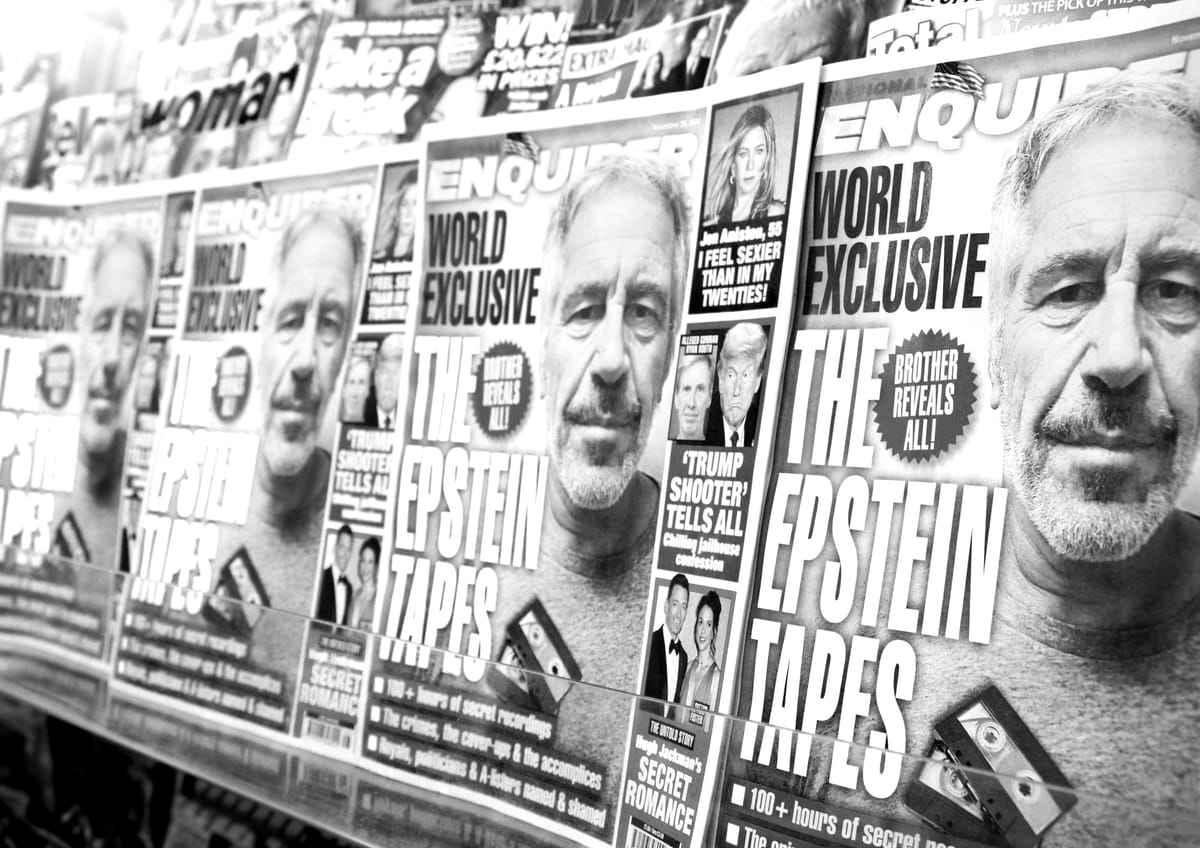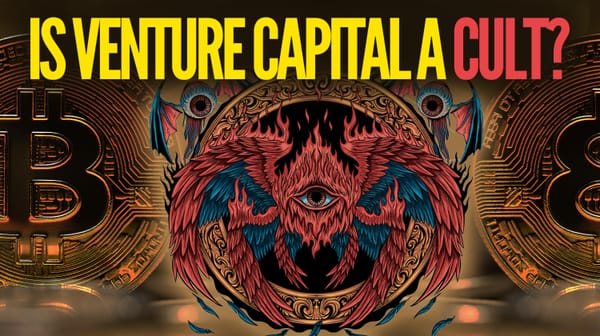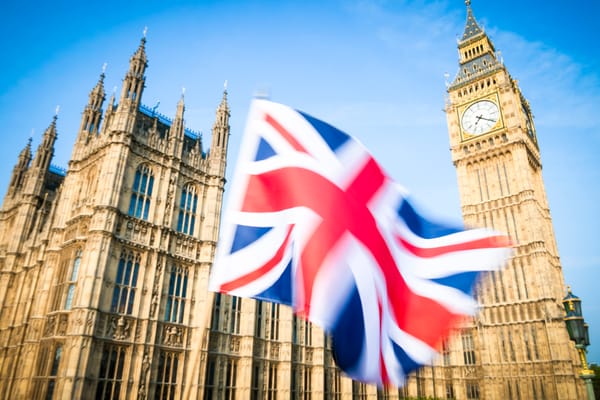Epstein, Thiel, Trump and the Danger of Conspiracy Theory
Reality has become more conspiratorial than any conspiracy theory

On January 10, Peter Thiel suggested that Donald Trump’s return to power would result in stunning revelations. Writing in the Financial Times, Thiel suggested that Trump would unleash a flood of shocking truths.
Thiel said the president would crush the “Distributed Idea Suppression Complex”— or, what normal people call fact-checking and journalism. Trump would do this by embracing conspiracy theory and quashing government secrecy.
For example, Thiel wrote, skeptical Americans might finally learn the truth about things like the 2019 jailhouse death of pedophile financier Jeffrey Epstein and the 1963 assassination of President John F. Kennedy:
In hindsight, the internet had already begun our liberation from the [Distributed Idea Suppression Complex] prison upon the prison death of financier and child sex offender Jeffrey Epstein in 2019. Almost half of Americans polled that year mistrusted the official story that he died by suicide, suggesting that DISC had lost total control of the narrative.
It may be too early to answer the internet’s questions about the late Mr Epstein. But one cannot say the same of the assassination of John F Kennedy. Sixty-five percent of Americans still doubt that Lee Harvey Oswald acted alone. Like an outlandishly postmodern detective story, we have waited 61 years for a denouement while the suspects — Fidel Castro, 1960s mafiosi, the CIA’s Allen Dulles — gradually die. The thousands of classified government files on Oswald may or may not be red herrings, but opening them up for public inspection will give America some closure.
It seemed strange for Thiel to pair the Epstein and Kennedy deaths. The main thing they have in common is that they are both fodder for potent conspiracy theories involving American presidents. But that seemed to be Thiel's point—the idea that treating conspiracy theories as kooky and invalid distractions is a form of censorship or “suppression.”
Apparently, conspiracy theories should be treated as equal to evidence-based truth. Thiel’s piece frames conspiracy theories not as threats to democracy, but as democracy's salvation—the wisdom of crowds triumphing over the tyranny of facts.
Looking back, it seems especially curious that Thiel would invoke Epstein’s name at all. In 2025, one of the biggest revelations about Epstein is that he invested millions of dollars with Thiel.
As the New York Times reported on June 4:
In 2015 and 2016, Mr. Epstein put $40 million into two funds managed by Valar Ventures, a New York firm that was co-founded by Mr. Thiel. Today that investment is worth nearly $170 million, according to a confidential financial analysis of the late Mr. Epstein’s estate reviewed by The New York Times and a statement provided by a Valar spokesman.
Thiel did big business with Epstein and had multiple meetings with him in 2014. Of course, Epstein had business and social relationships with many prominent and wealthy people. He was also convicted of trafficking underage girls for sex.
There is no evidence Thiel had anything to do with that. I am not suggesting otherwise. My point is that it seems odd for Thiel, whose firm took millions from a man who turned out to be an infamous pedophile, to publicly invoke the conspiracy theory about his death in the pages of a major global newspaper without acknowledging his financial ties to the now-dead pedophile. (By the way, does Thiel believe Epstein was murdered?)
Most people would steer clear of such a radioactive subject—especially someone like Thiel, whose other businesses, like the surveillance giant Palantir, are deeply entwined in our nation's intelligence and law enforcement apparatuses.
The other big revelation about Epstein is one with potentially existential consequences for Trump's MAGA movement. Trump had long promised a full publication of the so-called Epstein Client List. This mythical document—the Holy Grail of MAGA conspiracies—would expose the rotten heart of the so-called Deep State, a shadowy and powerful force governed by sex rings and extortion. Or something like that...
But, as is his custom, Trump has reneged on the deal. Even worse, his administration now says the Epstein Client List does not actually exist. Attorney General Pam Bondi, who once said it was sitting on her desk, now denies its existence.
Understandably, this has stirred great anger and outrage among MAGA's fiercest adherents. They feel betrayed. Some of Trump's biggest supporters, like deputy FBI Director Dan Bongino, are reportedly threatening to resign.
On the cusp of finally knowing The Truth, the MAGA people find themselves embroiled in a deeper dimension of the conspiracy theory. For one reason or another, Trump is lying to them about the Epstein List. Did he lie when he said it existed? Or he is lying now by claiming it does not exist? Why would he do that? (Elon Musk has offered up the theory: Trump is in the Epstein files.)
The Epstein Files have become the perfect MacGuffin—a mysterious object that drives a movie's plot forward while containing nothing essential to the story itself. Think of the glowing briefcase in Pulp Fiction or the falcon statue in The Maltese Falcon.
Everyone wants it, everyone chases it, but what’s actually inside matters far less than the chase. The Epstein files mattered not for what they contained, but for what they promised to contain. Trump used them as a political plot device to stoke conspiracy theories against Joe Biden and fuel his return to power. But now he wants everyone to simply move on.
“For years, it’s Epstein, over and over again,” Trump posted on social media on Saturday, dismissing the subject as unimportant and portraying the Epstein files as a Democratic plot. “We have a PERFECT Administration, THE TALK OF THE WORLD, and ‘selfish people’ are trying to hurt it, all over a guy who never dies, Jeffrey Epstein.”
But that is precisely the problem with conspiracy theories: they never really die. Once the narrative is framed in the brains of the audience, facts and contradictory information simply bounce off. Trump now becomes a character in his own feverish fictional narrative—the hero-turned-villain, a liar and betrayer whose extremely close ties to Epstein were, perhaps, the biggest clue of all.
This is what makes conspiracy theories so dangerously powerful. Since it is nearly impossible to disprove false narratives in the minds of those who embrace them, conspiracy theories are inherently destructive to democracy. A citizen with no way to distinguish fact from fiction is little more than a victim. It makes sense that rational, reasonable and responsible people would seek to stigmatize conspiracy theory and disinformation. Evidence and facts should matter, and they should weigh more than lies and baseless theories.
The big revelation of 2025, which Thiel termed an apokálypsis (Greek for “unveiling”) in his January essay, is the obvious fact that Trump is a false prophet. The Epstein List has been disappeared (and mysteries continue to swirl around the circumstances of his death, including an odd lack of camera surveillance footage). The Kennedy Files were a dud that revealed nothing new.
The ultimate revelation: two of Jeffrey Epstein's associates pushed spooky tales about him while their own documented connections hid in broad daylight. Now they must face the monster they created—a conspiracy-addled base that no longer distinguishes between documented facts and fevered fantasies.
Reality has become more conspiratorial than any conspiracy theory.





